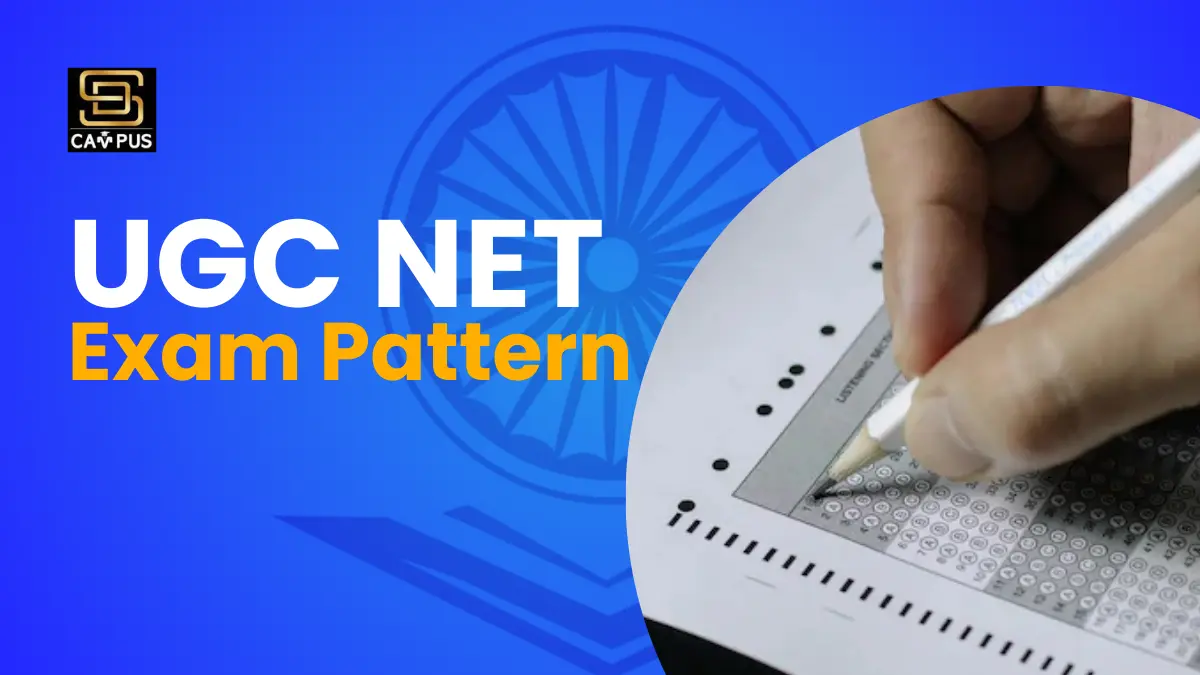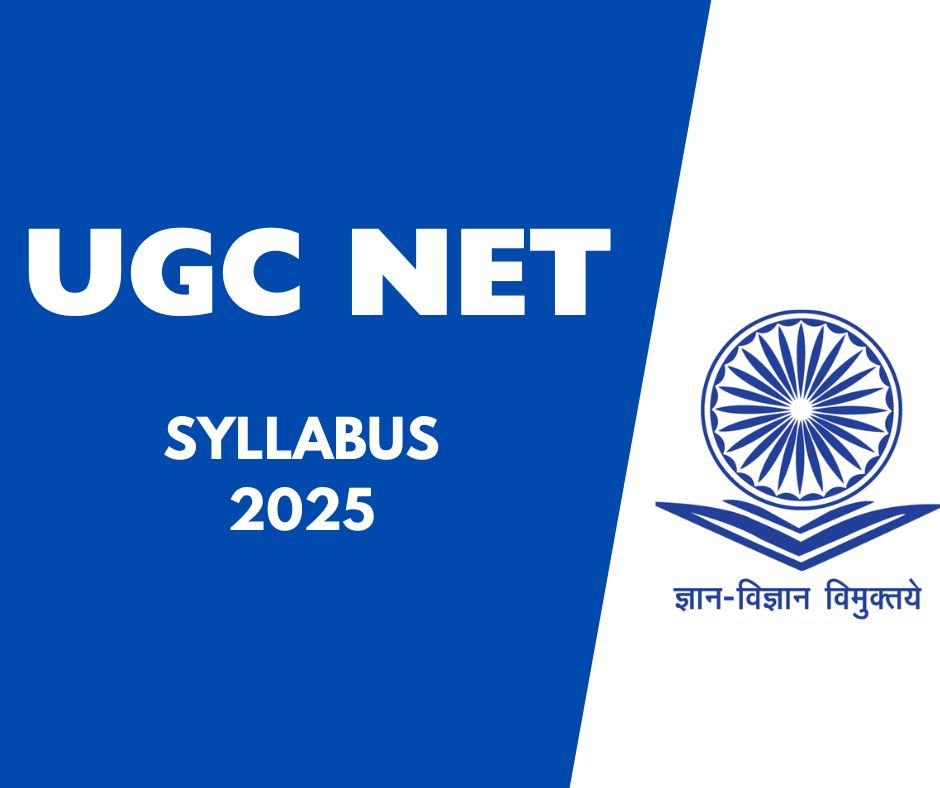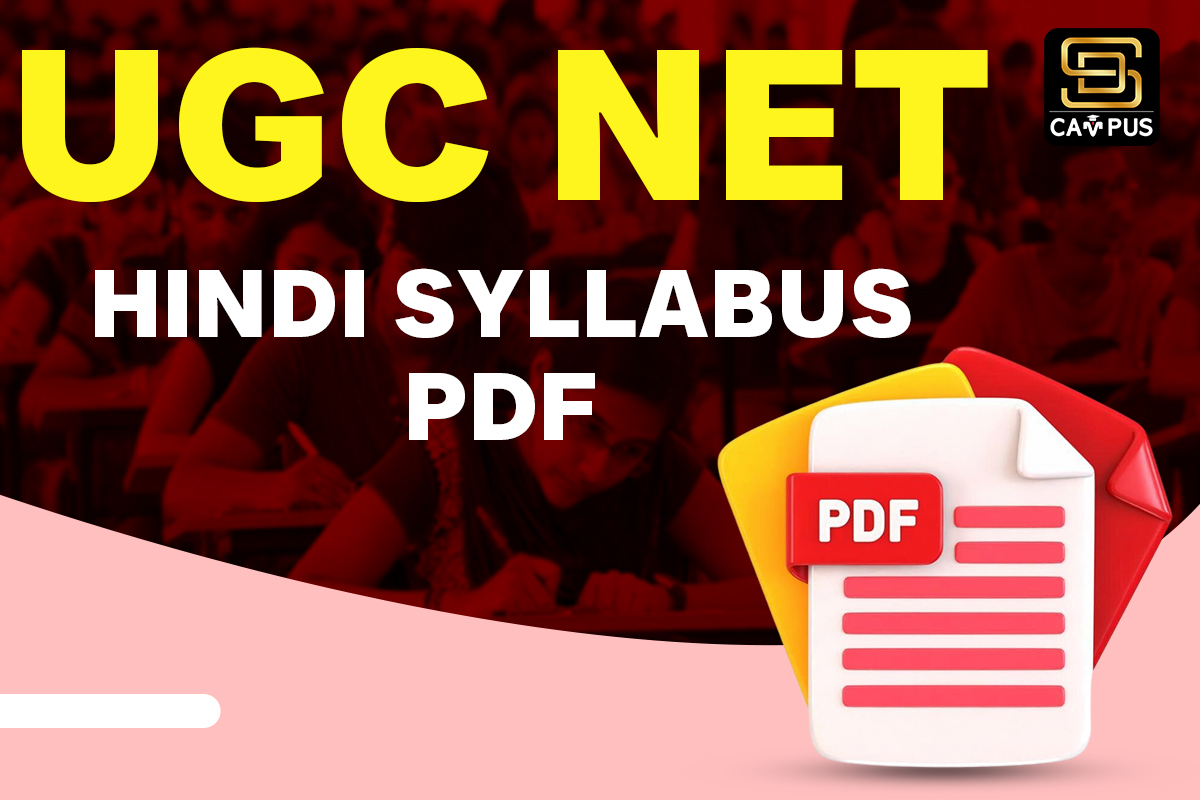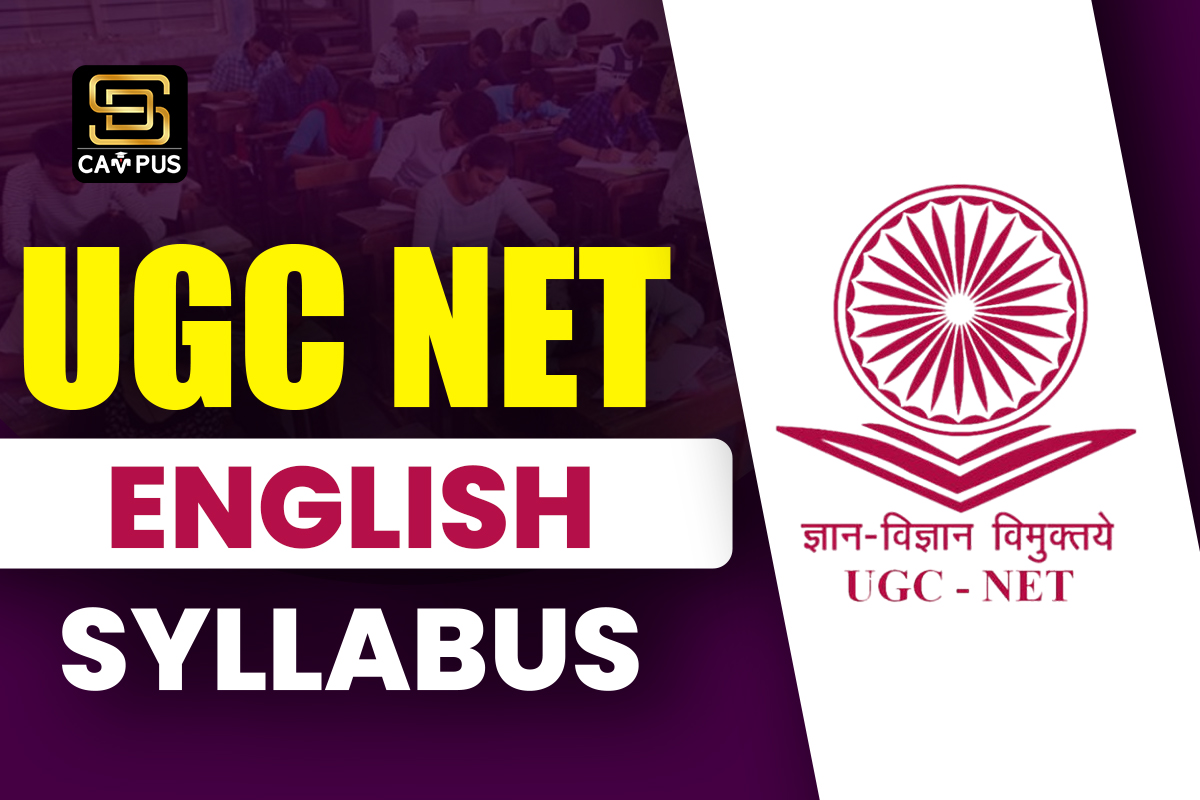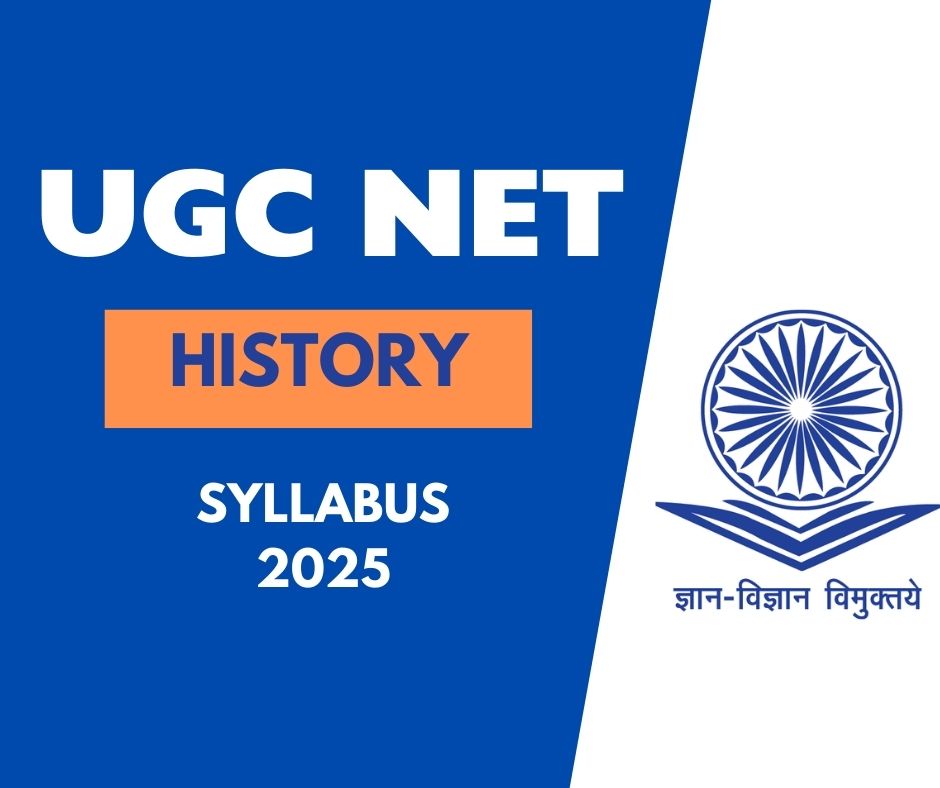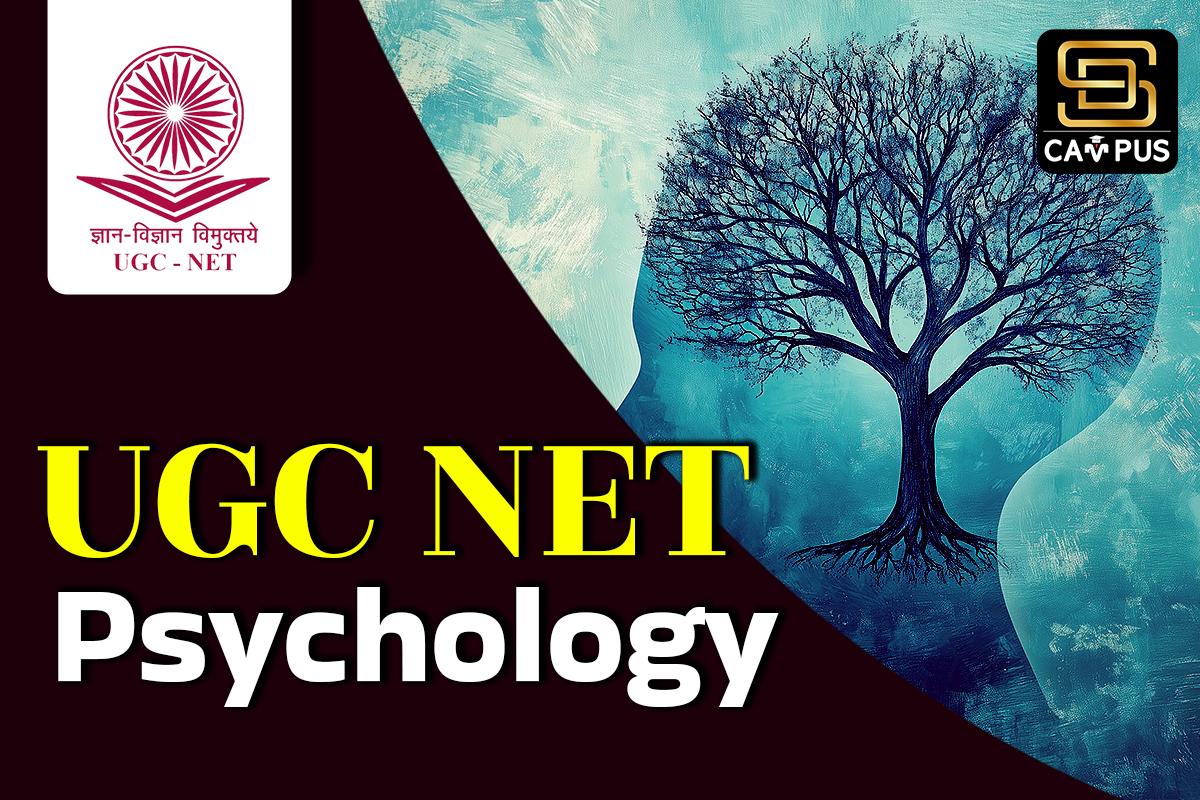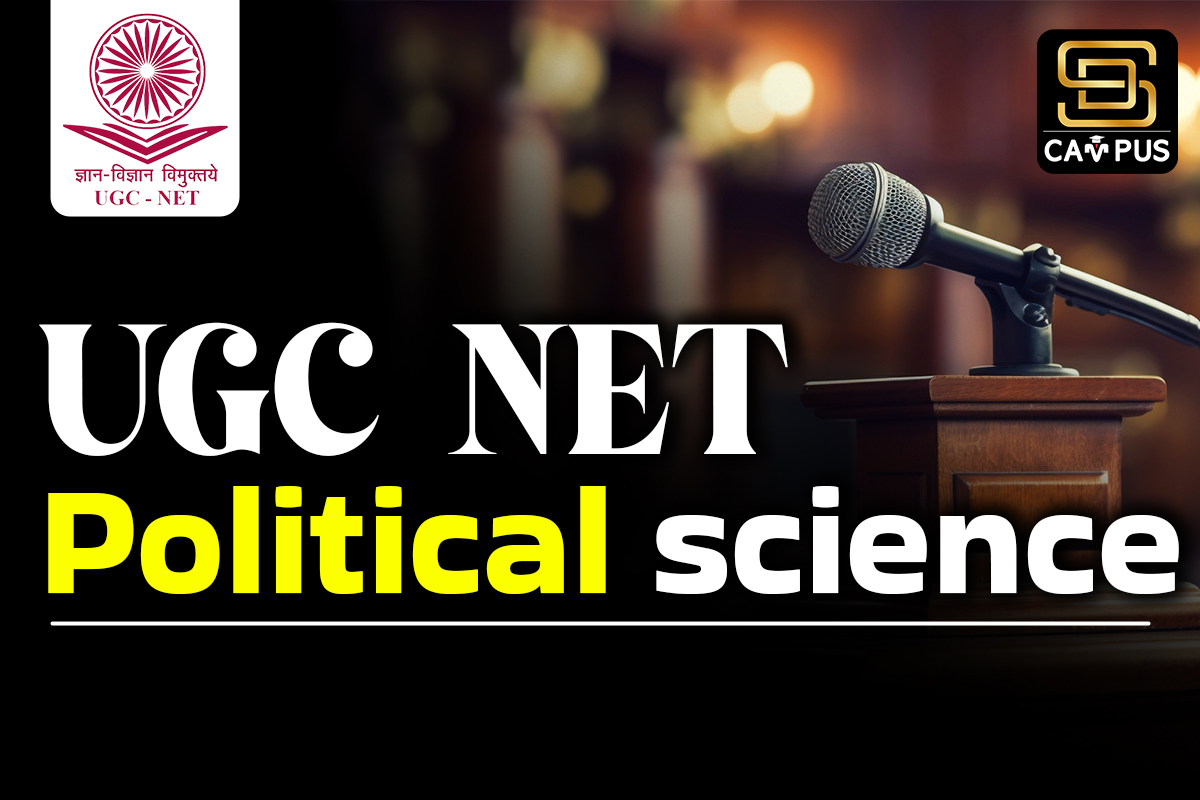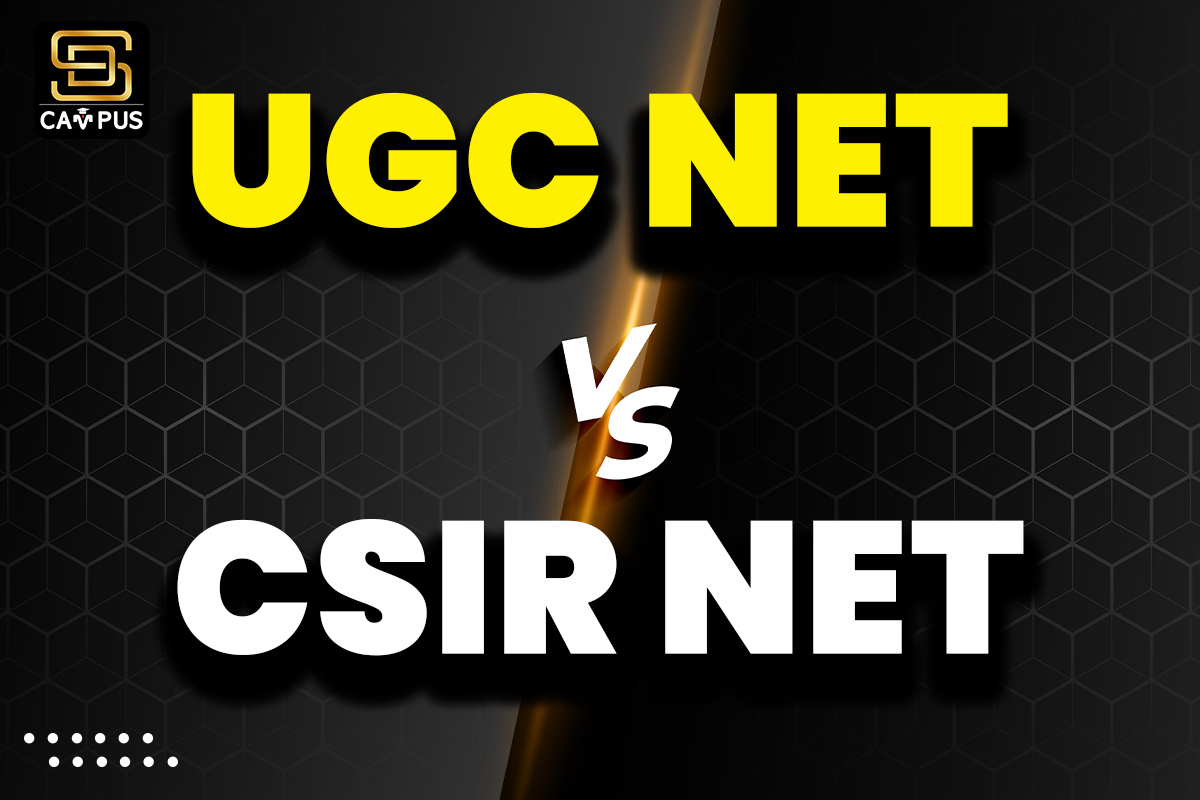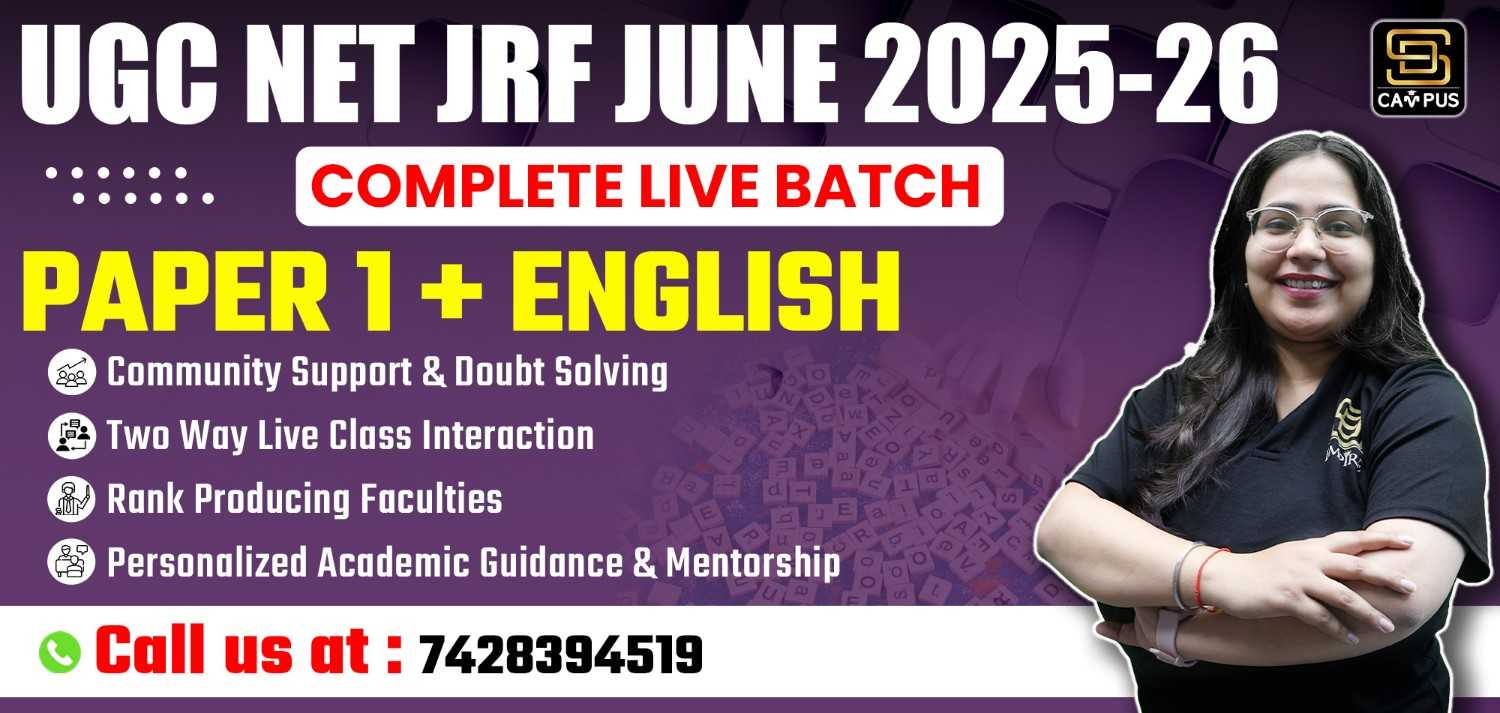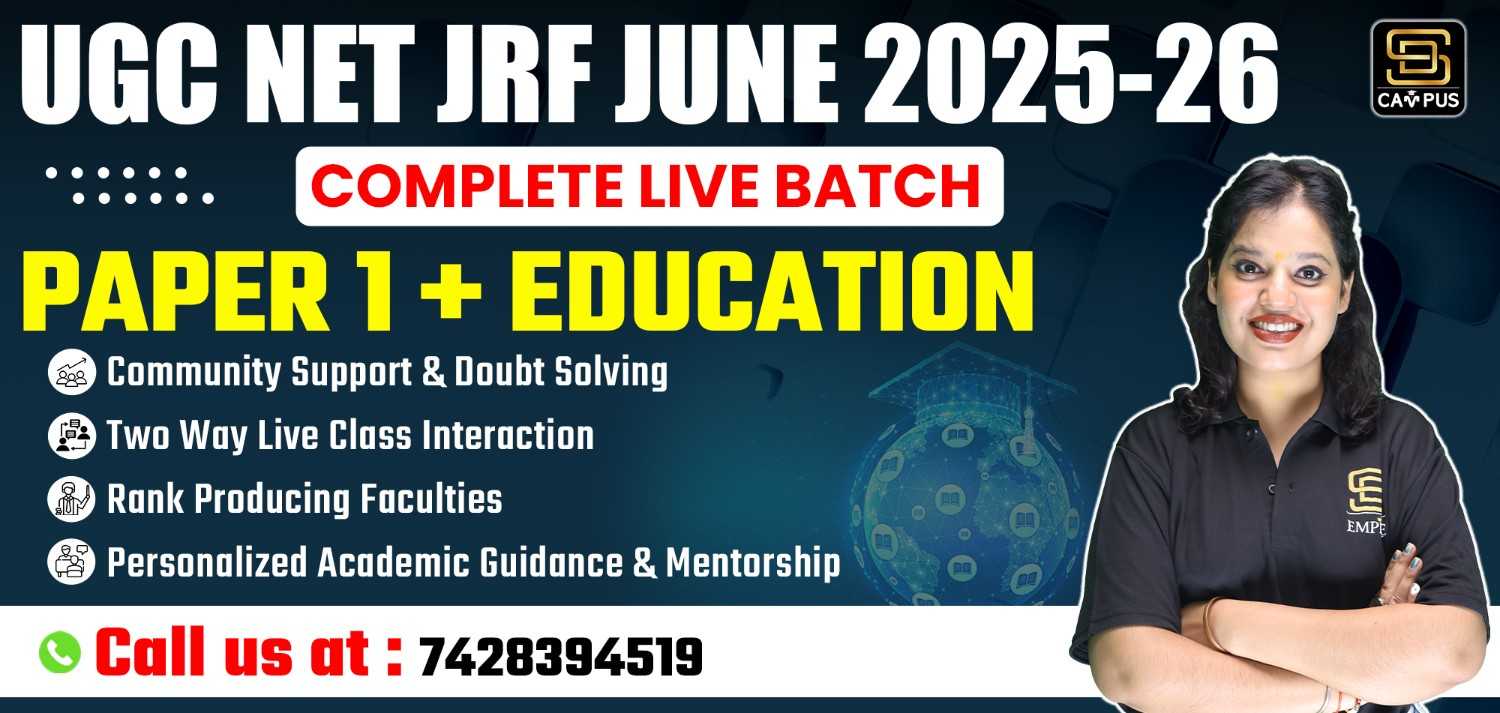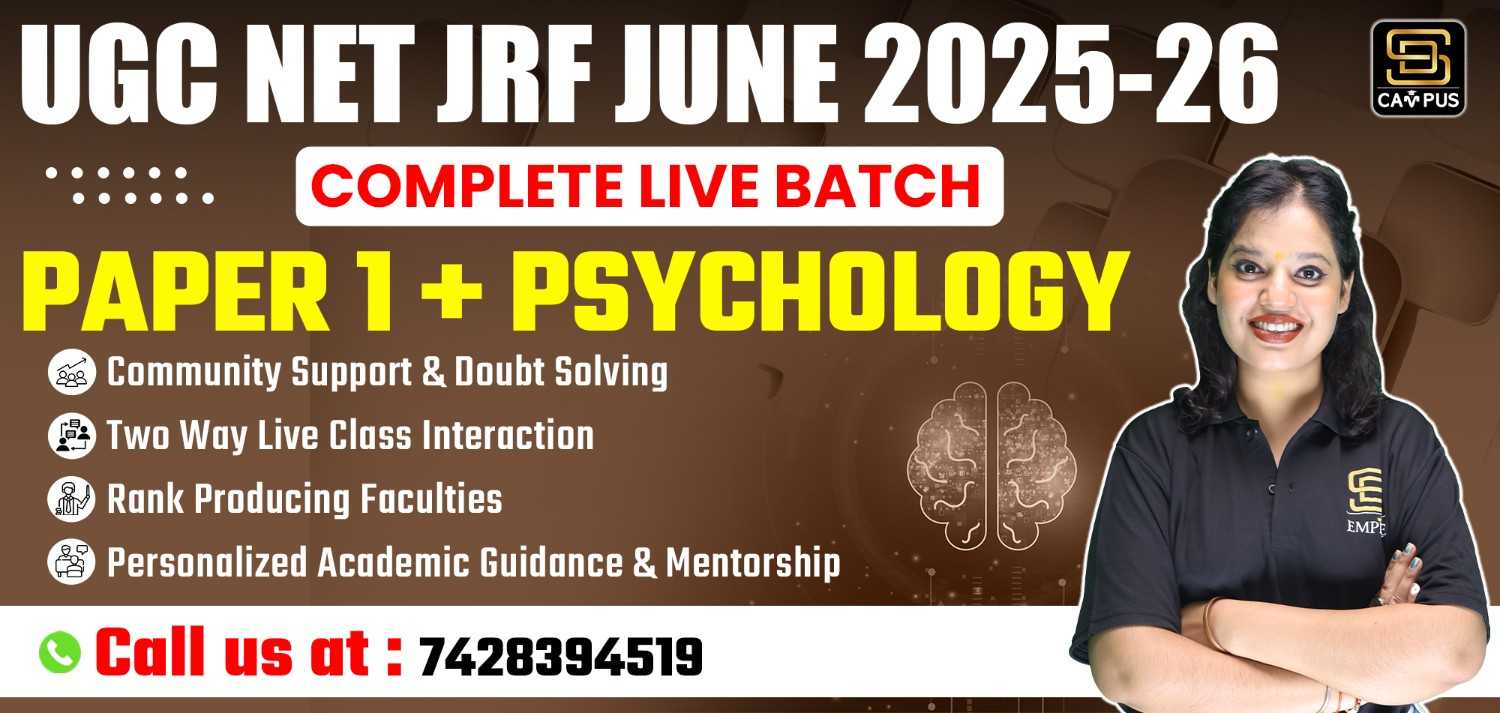UGC NET 2025 examination notification for June session is announced. Candidates who are preparing for the June session have less time remaining for preparation. There are 2 papers in the UGC NET qualification exam. Both contain 10 units. However, not preparing strategically for the exam might cost you time, money, and resources.
The applications started by 16 April 2025 and last date for UGC NET application stood to be 12 May 2025. Expected dates for the UGC NET 2025 exam is in June 2025.
Follow the article to learn how to study effectively for the UGC 2025 NET exam and cover more syllabi in a short duration and all important related information here.
Table of Contents
ToggleUGC NET 2025 Exam Date
UGC NET 2025 Highlights
UGC NET 2025 application will start soon. Candidates aspiring to appear shall check the highlights in the table:
| UGC NET 2025 Highlights | |
| Conducting Body | National Testing Agency (NTA) |
| Exam Name | UGC NET 2025 |
| Post Category | UGC NET 2025 Preparation Tips |
| Posts | Assistant Professor and Junior Research Fellowship (JRF) |
| Exam Level | National |
| Exam Frequency | Twice a year (June and December) |
| Mode of Exam | Online |
| UGC NET Exam Date 2025 | Between June 10 to 21, 2025 |
| Time Duration | 3 Hours |
| Language/Medium of Exam | English and Hindi |
| Number of Papers and Total Marks | Paper 1: 100 Marks Paper 2: 200 Marks |
| Marking Scheme | +2 for the correct answer, Negative Marking |
| Exam Helpdesk No. | 0120-6895200 |
| Official Site | ugcnet.nta.ac.in |
Also Read: Top Tips to Crack UGC Net 2024 Examination
UGC NET APPLICATION FORM Important Dates 2025
It is important not to miss out on any events when you have decided to apply for UGC NET 2025. It will help you ascertain the remaining time for preparation and study plan. Have a look at the table given below with information regarding the tentative dates for the National Eligibility Test:
|
Events |
UGC NET June Session |
UGC NET December Session |
|
UGC NET Notification 2025 |
16 April 2025 |
December |
|
UGC NET 2025 Online Application Process |
16 April – 12 May 2025 |
Nov – Dec |
|
UGC NET Exam Date |
21 – 30 June 2025 |
January |
|
UGC NET Admit Card |
May (tentative) |
December |
|
UGC NET Answer Key |
June – July (tentative) |
Jan – Feb |
|
UGC NET Result |
July (tentative) |
Feb |
|
UGC NET Cut-Off |
July |
Feb |
Understand UGC NET Exam Pattern 2025
The first and most important part of any preparation is to understand the exam pattern. The UGC NET EXAM 2025 pattern includes two papers, and each consists of multiple-choice questions. Details are given below.
|
UGC NET 2025 Examination Pattern |
||
|
Aspects |
Paper 1 |
Paper 2 |
|
Number of Questions |
50 |
100 |
|
Total Marks |
100 |
200 |
|
Marks per Question |
2 |
2 |
|
Duration |
1 hour |
2 hours |
|
Negative Marking |
No Negative Marking |
No Negative Marking |
Study the UGC NET Syllabus 2025
Candidates should have a clear understanding of the UGC NET exam 2025 syllabus.
The syllabus for Papers 1 and 2 is provided in the table below, along with all other details for the UGC NET examination.
|
UGC NET Paper 1 Syllabus |
|
|
UGC NET Subjects |
UGC NET Syllabus |
|
Unit-I (Teaching Aptitude) |
Teaching: Concept, objectives, levels of teaching (memory, understanding, and reflection), characteristics, and basic requirementsLearner’s characteristics: Characteristics of adolescent and adult learners (academic, social, emotional, and cognitive), individual differencesFactors affecting teaching related to Teacher, Learner, Support material, Instructional facilities, Learning environment, and InstitutionMethods of teaching in higher learning institutions: Teacher-centred vs learner-centered methods; offline vs online methods (Swayam, Swayamprabha, MOOCs, etc.).Teaching support system: Traditional, modern, and ICT-basedEvaluation systems: Elements and types of evaluation, evaluation in Choice Credit Systems in higher education, computer-based testing, innovations in evaluation systems |
|
Unit-II (Research Aptitude) |
Research: Meaning, types, and characteristics, positivism and post-positivist approach to researchMethods of research: Experimental, descriptive, historical, qualitative, and quantitative methodsSteps of researchThesis and article writing: Format and styles of referencingApplication of ICT in researchResearch ethics |
|
Unit-III (Comprehension) |
Reading comprehension with questions |
|
Unit-IV (Communication) |
Communication: Meaning, types, and characteristics of communicationEffective communication: Verbal and non-verbal, inter-cultural and group communications, classroom communicationBarriers to effective communicationMass media and society |
|
Unit-V (Mathematical Reasoning and Aptitude) |
Types of reasoning, mathematical aptitude, number and letter series, etc. |
|
Unit-VI (Logical Reasoning) |
Argument structure, deductive and inductive reasoning, analogies, Venn diagrams, Indian logic, etc. |
|
Unit-VII (Data Interpretation) |
Data sources, acquisition, classification, Interpretation, Governance, etc. |
|
Unit-VIII (Information and Communication Technology (ICT)) |
Basics of ICT, internet, email, digital initiatives, and governance, etc. |
|
Unit-IX (People, Development, and Environment) |
Development and environment interaction, environmental issues, resources, Environmental protection acts, international agreements, and efforts, etc. |
|
Unit-X (Higher Education System) |
History of higher education in India, learning programs, policies, and governance, etc. |
UGC NET Paper 2 Syllabus
2025
Here’s the table for the UGC NET paper 2 syllabus:
|
UGC NET Subjects |
UGC NET Syllabus |
|
Economics / Rural Economics / Cooperation / Demography / Development Planning/ Development Studies / Econometrics/ Applied Economics/ Development Eco./ Business Economics |
– Microeconomics, Macroeconomics, and International Economics – Quantitative Methods for Economics – Development and Growth Economics – Indian Economy and Economic Development – Public Economics – Economics of Social Sector and Environment – Econometrics and Statistics |
|
Political Science |
– Political Theory and Thought – Comparative Politics and Political Analysis – Indian Government and Politics – Public Administration – International Relations – Political Institutions and Processes |
|
Philosophy |
– History and Problems of Philosophy – Ethics and Social Philosophy – Indian and Western Philosophical Traditions – Logic and Epistemology – Philosophy of Language and Mind- Metaphysics and Philosophy of Religion |
|
Psychology |
– Research Methods and Statistics- Cognitive Psychology, Learning and Memory- Social Psychology- Developmental Psychology – Clinical and Health Psychology – Industrial and Organizational Psychology |
|
Sociology |
– Sociological Theory and Concepts – Research Methods and Analysis – Institutions, Culture and Social Change – Economy, Polity and Society – Population and Society – Social Stratification |
|
History |
– Ancient Indian History – Medieval Indian History – Modern Indian History – World History – Historiography and Historical Methods – Indian National Movement |
|
Anthropology |
– Biological Anthropology – Social and Cultural Anthropology – Archaeological Anthropology – Linguistic Anthropology – Research Methods and Techniques – Tribal and Indigenous Cultures |
|
Commerce |
– Business Environment and International Business- Financial and Management Accounting – Business Statistics and Research Methods Business Management and Marketing- Human Resource Management- Banking and Financial Institutions |
|
Education |
– Philosophical, Sociological and Historical Foundations of Education – Psychology of Learning and Development – Research Methods and Data Analysis – Curriculum and Pedagogy – Educational Technology – Inclusive and Special Education |
|
Social Work |
– History and Philosophy of Social Work – Social Work Methods and Practice – Human Growth and Development – Community Organization and Development – Social Work Research – Welfare and Development Administration |
|
Defence and Strategic Studies |
– National Security – Military Psychology – Military History and Warfare – Indian Strategic Thought and International Relations – Security and Conflict Management -Current Security Issues and Challenges |
|
Home Science |
– Foods and Nutrition – Resource Management and Consumer Issues – Human Development and Family Studies – Textiles and Clothing – Home Science Extension Education – Housing and Interior Design |
|
Public Administration |
– Theories and Concepts of Public Administration – Administrative Thinkers – Public Policy and Governance – Indian Administration – Comparative Public Administration – Financial Administration and Governance |
|
Population Studies |
– Demographic Methods – Fertility, Mortality, and Migration – Population Health and Society– Population Policies and Programs – Population and Development – Population and Environment |
|
Music |
– Indian Music Theory and Concepts – Western Music Theory and Concepts – Music Composition and Performance – Music Education – Music Technology – History and Evolution of Music |
UGC NET Exam 2025 Marking Criteria
Candidates preparing for the exams must know the marking scheme of the UGC NET exam. Here is the marking scheme for UGC NET papers 1 and 2:
|
Aspects |
Paper 1 |
Paper 2 |
|
Number of Questions |
50 |
100 |
|
Total Marks |
100 |
200 |
|
Marks per Question |
2 |
2 |
|
Duration |
1 hour |
2 hours |
|
Negative Marking |
No Negative Marking |
No Negative Marking |
UGC NET 2025 Eligibility Criteria
Applicants are advised to carefully review the UGC NET 2025 eligibility criteria. Those belonging to the general or general EWS category must possess a postgraduate degree or its equivalent from a recognized university or institution with a minimum of 55% marks. Further educational requirements can be found in the table provided below, encompassing all necessary details.
|
Eligibility Criteria |
Details |
|
Educational Qualification |
– Candidates must hold a postgraduate degree from a university recognized by the UGC. |
|
|
– Alternatively, candidates qualifying in the NET, based on a four-year undergraduate degree, will be eligible for Junior Research Fellowship (JRF) and Ph.D admission, but not for Assistant Professor. They must have secured a minimum of 75% marks in aggregate in the four-year undergraduate degree. |
|
Relaxation for Reserved Categories |
– Candidates belonging to reserved categories (SC/ST/OBC non-creamy layer/Differently-Abled/Economically Weaker Section) are granted a relaxation of 5% in qualification. |
|
Exemption for State Eligibility Test (SET) |
– Candidates who have successfully cleared the State Eligibility Test (SET) before June 1, 2002, are exempted from appearing for the UGC NET exam |
|
Category |
UGC NET JRF |
UGC NET Assistant Professor |
|
Age Limit |
Not exceeding 30 years as of the first day of the month in which the UGC NET exam concludes |
No age limit |
|
Relaxation for Reserved Categories |
Reserved category candidates are granted a relaxation of five years in the age criteria for UGC NET JRF |
Not applicable |
Preparation Strategy for UGC NET 2025
In order to prepare oneself for any examination, it’s crucial for candidates to develop an effective preparation plan beforehand. Below, we’ve outlined a comprehensive guide to aid in covering all topics and syllabi within the allocated timeframe for the UGC NET exams 2025.
- Understand the Exam Pattern and Syllabus: The first step in mastering the UGC NET 2025 is to grasp the UGC NET Exam Pattern and syllabus.
- Create a study plan: Create a study plan that covers every topic based on what you understand about the syllabus. Break down the syllabus into smaller milestones and allocate sufficient time for revision and practice. Take enough time for each topic and paper.
- Allocate Time for Each Subject: Assign sufficient time for each subject according to your comprehension and the significance of topics in the exam. This strategy will guarantee comprehensive coverage of crucial areas and alleviate last-minute stress.
- Choose the Correct Study Materials: NCERT texts are the cornerstone of UGC NET preparation. They provide a solid conceptual comprehension and are suggested by top students as primary study materials.
- Make Notes: Make a comprehensive note for all the subjects and write down important points of formulas, definitions, etc. This will save your time.
- Focus on Core Concepts: Instead of simply memorizing, prioritize understanding the fundamental concepts. This approach will enable you to tackle questions from various topics with ease and effectiveness.
- Time Management: Set up separate time slots for different topics based on your talents and shortcomings. Effective time management is critical for success in Paper 1.
- Enhance Your General Awareness: Enhance your General Awareness by reading newspapers, magazines, and online articles, blogs to enhance your knowledge
- Online Resources and Mock Tests: Use online resources like educational websites, YouTube channels, and mock tests to help you prepare. These platforms provide useful information, practice questions, and time management skills.
- Revise Regularly: Maintaining consistency is crucial in UGC NET 2025 preparation. Regular practice cultivates confidence, refines time management, and hones problem-solving abilities.
Revise your notes, formulas, definitions, etc. on a regular schedule, preferably daily, to better retain the material and refresh your memory before the exam.
|
Related Articles |
|
Frequently Asked Questions
Que 1: Is the UGC NET syllabus changed for 2025?
Ans 1: Yes. The syllabus is updated by UGC to align with NEP 2020, applicable from UGC NET June 2024 onwards.
Ques 2: What are the requirements for UGC NET?
Ans 2: A Master’s degree or an equivalent qualification with 55% marks. For reserved categories, there is a 5% relaxation in marks.
Ques 3: Is the UGC NET 2025 application form released?
Ans 3: Yes, on 16 April 2025.
Ques 4: What are the cut-off marks for the UGC NET examination 2025?
Ans 4: Minimum qualifying marks for the general category are 40% in both papers, while 35% for the reserved category.
Ques 5: Where to get the Answer key for the UGC NET exam?
Ans 5: The notification for the answer key will be available on the official website – ugcnet.nta.ac.in.

My name is Mansi Jindal, and I specialize in writing clear, informative content on topics like government exams, job opportunities, school exams, and entrance tests. I focus on providing comprehensive and accurate information to guide readers through their academic and professional journeys.


